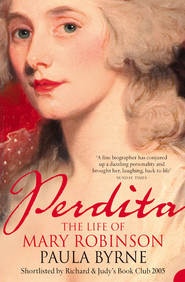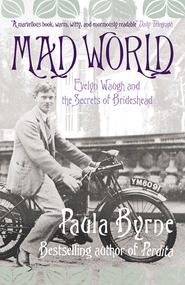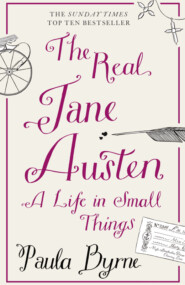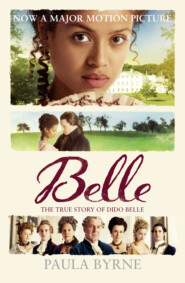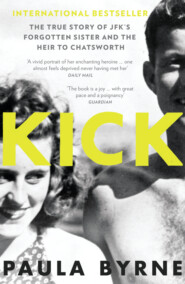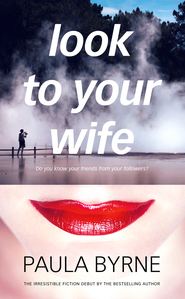По всем вопросам обращайтесь на: info@litportal.ru
(©) 2003-2024.
✖
The Genius of Jane Austen: Her Love of Theatre and Why She Is a Hit in Hollywood
Настройки чтения
Размер шрифта
Высота строк
Поля
USHER: Thirdly, and lastly, both he, and they – [Whispers.]
BAYES: Now they both whisper. [Exeunt Whispering.]63 (#litres_trial_promo)
‘The Mystery’ is closely modelled on this whispering scene. Austen’s playlet is comprised of a series of interruptions and non-communications. It opens with a mock mysterious line, ‘But hush! I am interrupted!’, and continues in a similarly absurd and nonsensical manner:
DAPHNE: My dear Mrs Humbug how dy’e do? Oh! Fanny, t’is all over.
FANNY: Is it indeed!
MRS HUMBUG: I’m very sorry to hear it.
FANNY: Then t’was to no purpose that I …
DAPHNE: None upon Earth.
MRS HUMBUG: And what is to become of? …
DAPHNE: Oh! thats all settled. [whispers Mrs Humbug]
FANNY: And how is it determined?
DAPHNE: I’ll tell you. [whispers Fanny]
MRS HUMBUG: And is he to? …
DAPHNE: I’ll tell you all I know of the matter. [whispers Mrs Humbug and Fanny]
FANNY: Well! now I know everything about it, I’ll go away.
MRS HUMBUG & DAPHNE: And so will I. [Exeunt]
(MW, p. 56)
The play ends with a further whispering scene, where the secret is finally whispered in the ear of the sleeping Sir Edward: ‘Shall I tell him the secret? … No, he’ll certainly blab it … But he is asleep and won’t hear me … So I’ll e’en venture’ (MW, p. 57). In ‘The Mystery’, we are never told any information about the conversations between the characters, and it becomes as incongruous as Bayes’s own ‘new’ play, which he proudly insists has no plot.
Austen’s third playlet, ‘The First Act of a Comedy’, parodies musical comedy, an extremely popular mode of dramatic entertainment in the latter part of the eighteenth century.64 (#litres_trial_promo) A satirical passage from George Colman’s New Brooms (1776) targets the vogue for comic opera:
Operas are the only real entertainment. The plain unornamented drama is too flat, Sir. Common dialogue is a dry imitation of nature, as insipid as real conversation; but in an opera the dialogue is refreshed by an air every instant. – Two gentlemen meet in the Park, for example, admire the place and the weather; and after a speech or two the orchestra take their cue, the musick strikes up, one of the characters takes a genteel turn or two on the stage, during the symphony, and then breaks out –
When the breezes
Fan the trees-es,
Fragrant gales
The breath inhales,
Warm the heart that sorrow freezes.65 (#litres_trial_promo)
Austen, like Colman, satirises the artificiality of the comic opera, its spontaneous outbursts of songs, and distinctive lack of plot.66 (#litres_trial_promo) Austen’s playlet concerns the adventures of a family en route to London, and is set in a roadside inn, a familiar trope of the picaresque form popularised in Fielding’s novels Joseph Andrews and Tom Jones.67 (#litres_trial_promo) Austen’s play also nods towards Shakespeare’s comic scenes set in ‘The Boar’s Head’ in Henry IV, Parts One and Two. Three of the female characters are called ‘Pistoletta’, ‘Maria’ and ‘Hostess’.
Chloe, who is to be married to the same man as Pistoletta, enters with a ‘chorus of ploughboys’, reads over a bill of fare and discovers that the only food available is ‘2 ducks, a leg of beef, a stinking partridge, & a tart’. Chloe’s propensity for bursting into song at any given moment echoes Colman’s burlesque of the inanities of comic opera: ‘And now I will sing another song.’
SONG
I am going to have my dinner,
After which I shan’t be thinner,
I wish I had here Strephon
For he would carve the partridge
If it should be a tough one.
CHORUS
Tough one, tough one, tough one,
For he would carve the partridge if it should be a tough one.
(MW, p. 174)68 (#litres_trial_promo)
As will be seen in the next two chapters, Austen clearly enjoyed musical comedy, even if, like Colman, she was conscious of its deficiencies as an ‘imitation of nature’.
The three playlets in the juvenilia are parodic and satirical, and a strong sense prevails that Austen was writing to amuse her sophisticated, theatre-loving brothers. Whether she was composing a mocking counterpart to Berquin’s instructive dramatic dialogues, or writing burlesques in the style of plays like The Rehearsal and The Critic, she endeavoured to impress her siblings with her knowledge of the drama. Two of her playlets, ‘The Mystery’ and ‘The First Act of a Comedy’, allude specifically to what was popular on the London stage, and mock it by drawing attention to its limitations and artificiality. ‘The Visit’ nods to the popular comedy High Life Below Stairs, so often dramatised for the private theatre, and begins to explore the incongruities and absurdities of genteel social behaviour.
In contrast with Berquin and William Hayley, who self-consciously used their plays to instruct, Austen entertains. Furthermore, even as she abandoned plays and turned to fiction, she began an apprenticeship in the art of dramatic dialogue and quasi-theatrical techniques that was to distinguish her mature writing. Austen’s juvenilia reveals a deep familiarity with the most popular plays of the period: the works of Garrick, Fielding, Sheridan and Cowley.69 (#litres_trial_promo)
The Steventon theatricals took place between 1782 and 1790, coinciding with the period in which Jane Austen’s juvenile literary works were written. Given the abundance of dramatic entertainment that she was exposed to at this time, it is not at all surprising that there were attempts at playwriting among her youthful literary efforts. Contrary to popular belief, however, it was not only in her childhood at Steventon that Austen developed her interest in the drama. In the period between the composition of the early versions of Northanger Abbey, Pride and Prejudice and Sense and Sensibility and the completion of the mature novels, Austen was taking part in private theatricals, writing dramatic dialogues and turning her favourite novel into a five-act comedy.
Jane Austen took part in private theatricals in 1805 when she was thirty. The death of her father early in the same year had a profound effect on the lives of the three dependent women whom he left behind, who were not to find a permanent home until they settled at Chawton in 1809. Some time after her father’s death Austen may have redrafted and put the finishing touches to a short epistolary novel, Lady Susan. In June, the Austen sisters left Gay Street in Bath, collecting their niece Anna on the way, and set out for her brother Edward (Austen) Knight’s Godmersham home. During her time at Kent, Jane spent many hours amusing her favourite nieces, Fanny and Anna, with play-acting. It was here that Anne Sharp, the children’s governess, formed a friendship with Jane Austen that was to last for the rest of the latter’s life. In the Godmersham private theatricals, Miss Sharp played the male roles and was clearly a great success.
The unpublished diaries of one of those nieces, Fanny Knight, reveal that aunt Jane had no scruples about play-acting. Fanny records a game of ‘school’ in which her aunts, grandmother and governess dressed up and took part:
Wednesday 26 June. We had a whole holiday. Aunts and Grandmama played at school with us. Aunt C was Mrs Teachum the Governess Aunt Jane, Miss Popham the teacher Aunt Harriet, Sally the Housemaid, Miss Sharpe the Dancing Master the Apothecary and the Serjeant, Grandmama Betty Jones the pie woman and Mama the bathing woman. They dressed in Character and we had a most delightful day. – After dessert we acted a play called Virtue Rewarded. Anna was the Duchess St Albans, I was the Fairy Serena and Fanny Cage a shepherdess ‘Mona’. We had a bowl of Syllabub in the evening.70 (#litres_trial_promo)
Although improvisational play was part of the fun, the small company of women also included their own plays in their repertoire. Virtue Rewarded may well have been composed by Anne Sharp, with roles written specifically for the children.71 (#litres_trial_promo)
The theatricals continued throughout June and July. Then on 30 July Fanny recorded two more amateur performances, including a play possibly written by Anne Sharp called Pride Punished: or Innocence Rewarded:72 (#litres_trial_promo) ‘Aunt C and J, Anna, Edward, George, Henry, William and myself acted The Spoilt Child and Innocence Rewarded, afterwards we danced and had a most delightful evening.’73 (#litres_trial_promo) Bickerstaffe’s The Spoilt Child was a great favourite on the London stage, popularised by Mrs Jordan who played the cross-dressed role of ‘Little Pickle’, the naughty child of the title. If Fanny played the part of Little Pickle and Anne Sharp his father, it is plausible that Jane Austen took the role of the spinster aunt, Miss Pickle. The most popular scene in the play is when the naughty child catches his aunt and her lover in the garden reciting love poetry and planning their elopement, and sews their clothes together.
It was during the 1805 Kent visit that Jane Austen read Thomas Gisborne’s dour Enquiry into the Duties of the Female Sex. She would have been amused to discover Gisborne’s assertion that play-acting was injurious to the female sex through encouraging vanity and destroying diffidence ‘by the unrestrained familiarity with persons of the other sex, which inevitably results from being joined with them in the drama’.74 (#litres_trial_promo) Jane wrote to Cassandra, ‘I am glad that you recommended Gisborne for having begun, I am pleased with it, and I had quite determined not to read it’ (Letters, p. 112). This remark suggests a softening of her prior scepticism towards Gisborne, yet she clearly had no intention of putting his prescriptions into practice and giving up her involvement with private theatricals.75 (#litres_trial_promo) Jane Austen not only acted in plays at the same time that she was reading Gisborne, she also committed the grave offence of luring children into this dangerous activity, a practice that Gisborne particularly abhorred:
Most of these remarks fully apply to the practice of causing children to act plays, or parts of plays; a practice of which parents, while labouring to vindicate it, sometimes pronounce an emphatical condemnation, by avowing a future purpose of abandoning it so soon as their children shall be far advanced in youth.76 (#litres_trial_promo)
Gisborne’s prejudice directly opposes Arnaud Berquin’s championing of the moral efficacy of family theatricals. Austen appears to have been more sympathetic to Berquin’s view, judging by her enthusiasm for private theatricals among Edward Knight’s young family at Kent. Perhaps she was rekindling memories of happier days at Steventon in her present uncertain state of home (she was to live at yet another brother’s home in Southampton before eventually settling at Chawton).
In the meantime she continued not only to act with the children, but also returned to drama writing. It may well have been at this time that, with the help of her niece Anna, she put the finishing touches to her five-act play, Sir Charles Grandison: or The Happy Man, a burlesque dramatisation of her favourite novel, Richardson’s The History of Sir Charles Grandison.77 (#litres_trial_promo)






